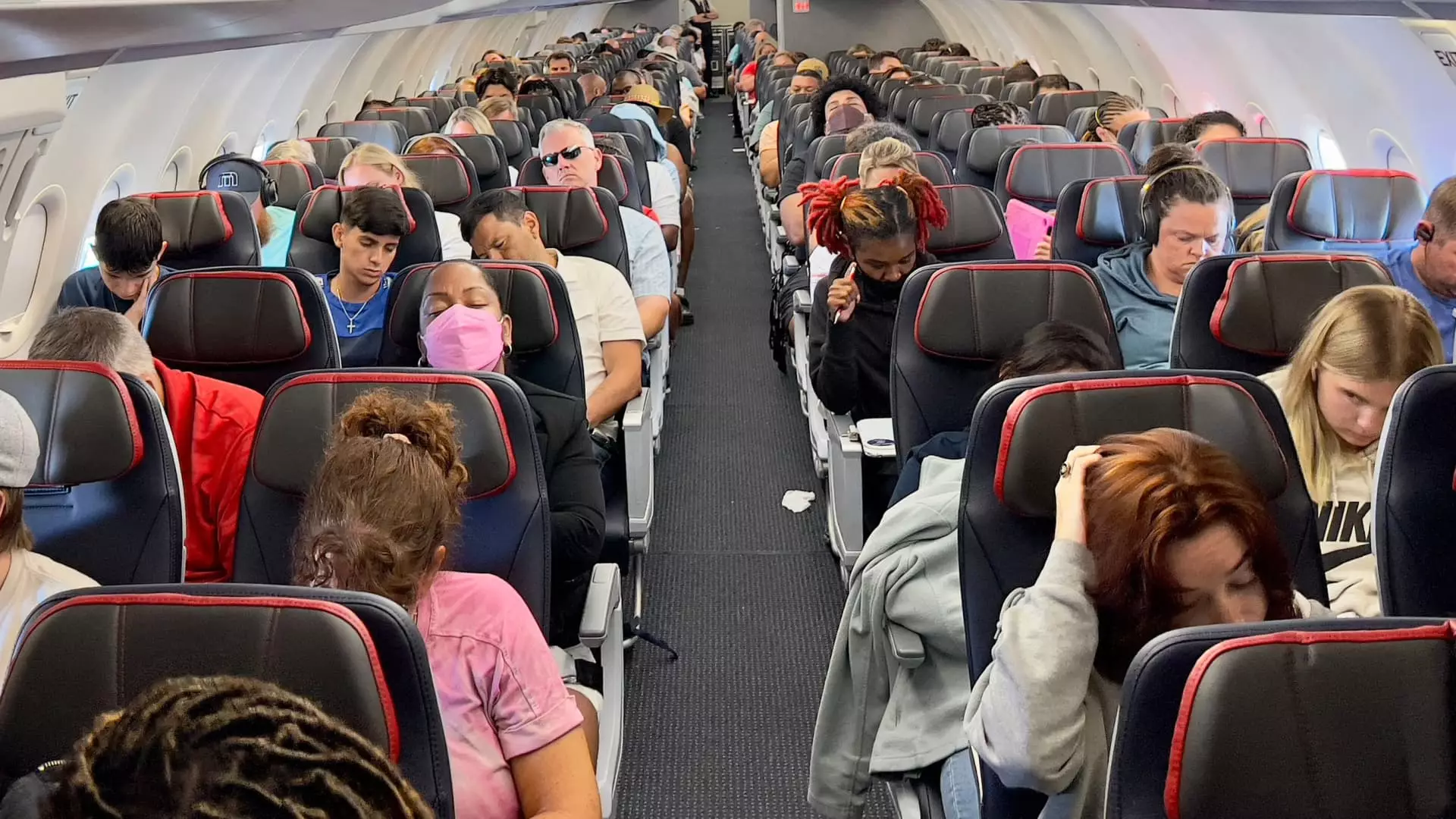In a recent hearing held by a Senate subcommittee, U.S. airlines faced significant criticism regarding the substantial fees levied for seat selection on flights. This issue is not merely an oversight but a symptom of a broader trend in the aviation industry that prioritizes profit over consumer transparency. According to findings presented by the Senate Permanent Subcommittee on Investigations, major airlines such as American, Delta, United, Spirit, and Frontier raked in an astonishing $12.4 billion in seating fees between 2018 and 2023. This revenue is indicative of a worrying pattern wherein customers are compelled to pay additional sums for choices that were once included in the ticket price.
The financial landscape for airlines has evolved dramatically, particularly in terms of how they generate revenue. For the first time since at least 2018, United Airlines reported that its earnings from seat selection fees, amounting to $1.3 billion, eclipsed revenue generated from checked baggage fees. This shift signifies a strategic pivot in how airlines monetize their services, cushioning the blow of diminished change fees for standard economy tickets by enforcing additional costs for preferred seating—a practice that many consumers might find disingenuous.
Notably, the Biden administration has prioritized the elimination of “junk fees”—a term that encapsulates the myriad of hidden charges that are increasingly becoming a factor of concern in consumer transactions. This governmental push has manifested in the scheduling of a forthcoming hearing titled “The Sky’s the Limit—New Revelations About Airline Fees,” where airline executives will be held accountable for their pricing strategies. Senator Richard Blumenthal, chair of the subcommittee, is keenly aware of the implications these fees have on everyday travelers, suggesting a potential reconsideration of how ticket pricing is structured in the industry.
In a defensive stance, Airlines for America—a key trade group representing major U.S. carriers—has responded robustly, arguing that the true season of affordability in air travel has emerged. They emphasize that customers now enjoy the freedom to choose what services they wish to pay for, reinforcing the notion that competition in the airline market is beneficial for consumers. However, this assertion raises questions about what constitutes real affordability when ancillary fees can climb as high as the original ticket price itself.
As air travel remains a vital component of modern lifestyle, the urgency to address these hidden fees is paramount. Consumers must be equipped with greater awareness and understanding of the true costs associated with air travel. The implications of this Senate inquiry could lead to a re-evaluation of these practices, potentially paving the way for clearer guidelines and enhanced consumer protections in the aviation sector. With the evolving dynamics of air travel, as well as consumers’ expectations for transparency, the industry may soon witness a significant transformation in how airline fees are communicated and implemented.

